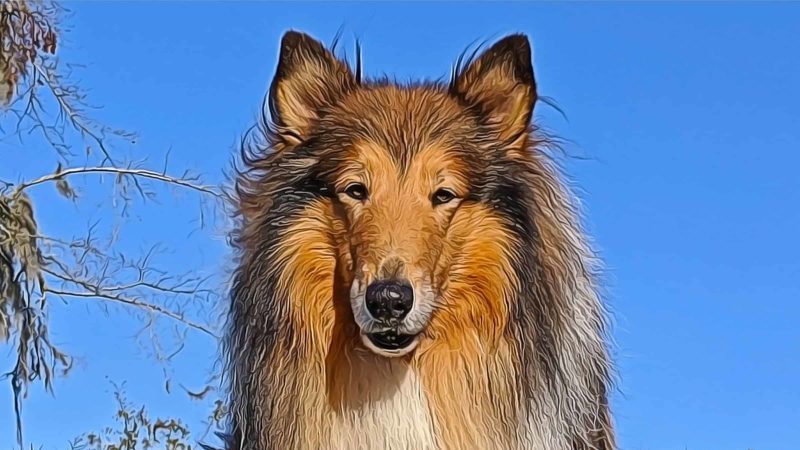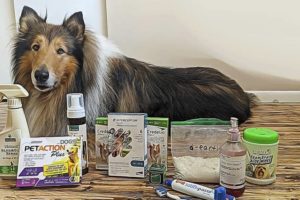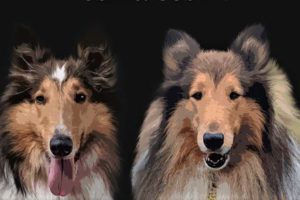Of course the number one reason to adopt is to provide a loving home to a dog that has either never had one, or can no longer be cared for by a wonderful owner. Many dogs that come to rescue just need a bit of guidance and a stable environment.
Training
Most rescue dogs have spent time in a family environment, have received the benefit of some basic obedience, and have learned the basics of house manners. Can you expect a perfectly trained dog? Probably not, but the foundation has been laid and is usually quite easy to build on.
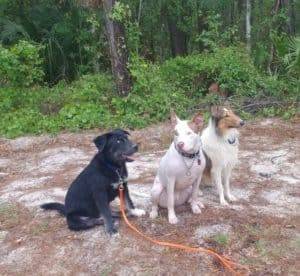
Temperament and Behavior
Most Rescue Organizations do some form of temperament testing before agreeing to accept the dog into their program. Foster families have the opportunity to continue to observe temperament before the dog becomes available for adoption. Good behaviors and behaviors that need work are known, and the adoptive home can make an informed decision as to what they feel they are able to cope with. Not all rescue dogs are problem dogs.
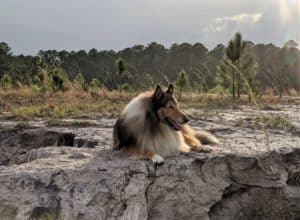
Sir Gustav, adopted at 1 year old, became a therapy dog at 3 years old. Read more about Gustav here.
Veterinary Care
Rescue dogs, if old enough, have already been spayed or neutered, are current on shots, and have been heartworm tested and treated if necessary. While some health issues can arise after adoption, many are recognized and treated during initial physicals and while in foster care. Known health problems are freely disclosed and can be discussed prior to adoption.
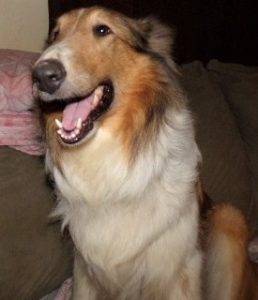
Luna was heartworm positive when rescued but has made a full recovery. Read Luna’s story here.
Bonding
Rescue dogs tend to form very strong bonds. Abused and neglected dogs, when treated with kindness and respect, blossom into loving and loyal companions. Skittish or timid dogs grow more confident, and with that confidence become more outgoing and affectionate. Given a home where they can learn to love and be loved, where affection and attention are combined with consistent training, rescue dogs can and do become the most wonderful of pets.

Sophie, who was tied to a highway median as a puppy and terrified of men, became a great family pet. Read Sophie’s story here.
Matchmaking
A rescue organization’s primary goal is to place their dogs in what will be their “forever” home. The group and the foster home can help guide you in choosing a dog that fits your lifestyle. Active dogs are placed with active families. If your desire is a “couch potato, foot warmer” type, they will strive to make sure you adopt that just-right dog.
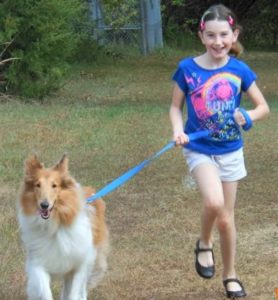
Pixie and Isobel had the right amounts of energy for each other! Read Pixie’s story here.
Continued Caring
With many rescue dogs there is a period of adjustment. Rescue groups continue to care long after the dog has been placed. Should you encounter problems, help is usually just a phone call away. If the problem is insurmountable, most groups will have a return clause written into their adoption contract.

Ricky was adopted at 8 months after a “failed” career as a show dog. Learn more about Ricky (and Cody!) here.
Housebreaking
Most rescue dogs are housebroken. If this area still needs work, an older dog can be much easier to housebreak than a puppy. Older dogs have more control and are more eager to please their owner by eliminating in the appropriate place. An older dog can be far more trustworthy with being left alone while you are at work. It is wise to remember that even the most fastidious of dogs can have an occasional accident.

Lisa S. prefers rescuing adult dogs to potty training puppies. Learn more about Kali, Piper, and Luna here.
No Size, Weight, or Color Surprises
When adopting an adult dog, there is no question of how large the dog will get, what color it will be, or what the dog’s appearance will be. For the most part, what you see is what you get. In some cases, with improved nutrition and care, coat conditions will improve and color may change slightly.
Opening your heart and home to a dog in need can be a most rewarding experience. Before you purchase, please take a moment to consider some of the wonderful dogs available for adoption.
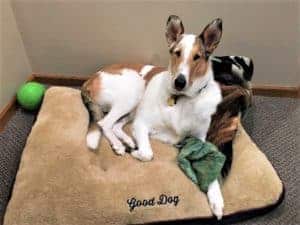
Tag is a harlequin sable merle Smooth Collie who was adopted at nearly a year old. Read Tag’s story here.
Opening your heart and home to a dog in need can be a most rewarding experience. Before you purchase, please take a moment to consider some of the wonderful dogs available for adoption.
*Written by Patricia Campbell and reprinted with permission from The National Rescue Committee, a committee of the Golden Retriever Club of America.
Did you know that Collie Chatter has a US Collie Rescue Directory? Visit our page if you’re looking to adopt a Collie or want to add a rescue to the directory!
Want to share a story about a wonderful rescue dog? Reach out to us through our contact form or leave it in the comments below! We’d love to hear it.
